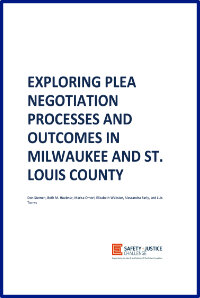By Gabriele Paolini, Elena Kantorowicz-Reznichenko, Stefan Voigt
Over the last three decades, plea bargaining has been adopted by many jurisdictions worldwide. However, a comprehensive account of both its adoption as well as its use is still missing. We survey 174 jurisdictions, finding that 101 allow plea-bargaining. For 52 jurisdictions, we also compute plea-bargaining rates, as the percentage of convictions imposed through plea bargaining over all criminal convictions. Relying on this novel dataset, we find that Muslim-majority populations and the French and Scandinavian legal origins are associated with lower probabilities of formalizing plea bargaining, while democracies are associated with higher probabilities. The Spanish and Socialist legal origins, a looser regulation of the procedure, and jury trials are associated with higher plea-bargaining rates, while higher income levels correlate with higher plea-bargaining rates only up to a certain point.
Journal of Empirical Legal Studies, Volume22, Issue1, March 2025, Pages 27-75








